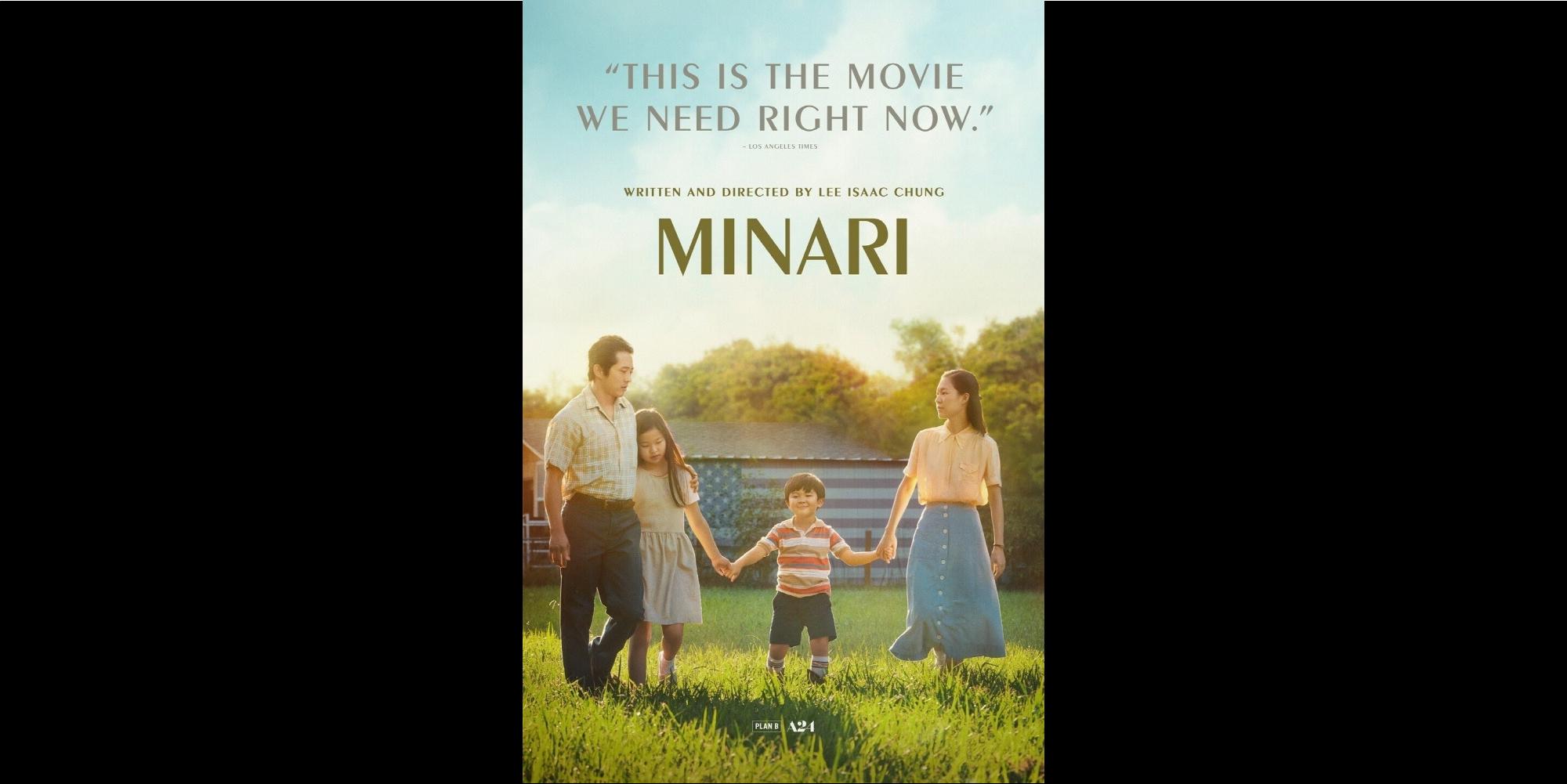After the successful Canadian TV-series release of Kim’s Convenience, Minari (미나리) becomes the first American film to portray the lives of Korean-American immigrant families. Following its January 20, 2020 world premiere at the Sundance Film Festival, Minari had received both the prestigious U.S. Dramatic Audience Award and U.S. Dramatic Grand Jury prize. It has also received 13 great accolades from various festivals and movie critics associations internationally.
Minari is director Lee Isaac Chung’s 2021 semi-autobiographical film which tells of the dynamics of his Korean-American immigrant family and their pursuit of success in turbulent 1980s rural Arkansas. The film follows their journey from finding a home, to baring the heavy stares in church, and even to raising water parsley on their newly acquired farmland. The film also navigates through the family’s constantly changing dynamics – capturing details of each up and down to accurately portray the lives of early Korean-American immigrant families.
The film begins with the arrival of a couple named Jacob and Monica, and their children David and Anne in Arkansas, who have left their life behind as chicken sexers is California. Jacob, who promised Monica and their children a brighter future, makes it a point that with their farm and promised crops he would make sure to secure this said stable life for his family. However, this proves to be difficult as failed crops increases along with the cost of living. The family dynamic changes when Jacob’s Grandmother Soon-Ja immigrates from South Korea and in with the family. Throughout the film, the couple and the kids deal with racism from the surrounding Caucasian majority, as well as conflicts amongst themselves regarding their current situation. Jacob, who is set on pursuing the American dream in Arkansas, often gets into arguments with Monica who is clearly a city person. Throughout the film, Soon-Ja serves an advisor to the couple and a sitter for the children, and the audience is able to observe the family’s growth through racism, economic crisis, and culture shock.
Director Lee Isaac Chung who had a chance to be interviewed alongside Oscar winning Director of Parasite, Bong Joon Ho stated that he had thought of his parents’ perspectives and the conflicts that arose when he had written the original script for the film. Director Bong Joon Ho complimented Chung greatly expressing that “it takes a lot of courage to shoot a film about yourself or your family, since it’s autobiographical.” He then continued to compliment Chung: “But what I appreciated more about this film is that it doesn’t wallow in nostalgia. It follows the perspective of multiple characters, and it doesn’t feature any voiceovers or narration. I think that level of distance makes the film more beautiful and universal.”
However, while Minari is being received positively by big-name individuals within the industry, the film has also been involved in some controversy. On December 23, 2020 the Golden Globe Awards, notorious for their controversial movie categorizations, had determined that because the film had featured a great amount of Korean dialogue, Minari was to be slotted in under the Foreign Language Film category instead of the Best Drama category. This was not well received, as Minari is known to be the telling of an American minority family. As such, many believe that the film should not be disqualified from competing in the Best Drama category.
In addition to the uniformly negative responses to the Golden Globe’s decision, some also go as far as to criticize the Golden Globe’s actions for its micro-aggressions against Asian minorities. Hawaii Five-O (2004-2010) star Daniel Dae Kim took it to twitter expressing that the Golden Globe’s decision was “the film equivalent of being told to go back to your country when that country is actually America.”
Lulu Wang, Chinese-American director of The Farewell (2019) also criticized the Golden Globes in a tweet: “It’s a story about an immigrant family, in America, pursuing the American dream. We really need to change these antiquated rules that [characterizes] American as only English-speaking.”
However, despite the large public outcry, much more are expressing their love for the film. On the popular film review website Rotten Tomatoes, Minari has earned a perfect score of 100% from movie critics. One states “Minari feels like Chung gazing into the past to recognize and empathize with the kind of hardships and sacrifices his immigrant parents had to endure. In the process, he creates a riveting drama about hope, family, and the difficulties of change.” Another critic states “This small but touching family drama perfectly evokes the times and rural setting. The couple’s struggle is as distressing as it is inspiring.”
More than anything, Minari has made an explosively positive impact on Korean-Americans – many expressing their appreciation of the film and its newfound role in bringing awareness to and challenging anti-Asian sentiment in many sectors of modern society.
For those curious for the future of the film, Minari is scheduled to be released in theaters on February 12, 2021, by A24. Minari is also nominated for Best Foreign Film at the 2021 Golden Globes which will take place on February 28, 2021.
Written by: Romeo Celes Jr.
Originally from Waipahu, Hawaii, Current 5th year university student, Candidate for a Bachelor of Arts in Korean Language Flagship, Molecular & Cell Biology, and minor in Music at the University of Hawai’i at Mānoa, Exchange student at Korea University and Intern at VANK (Voluntary Agency Network of Korea)”
